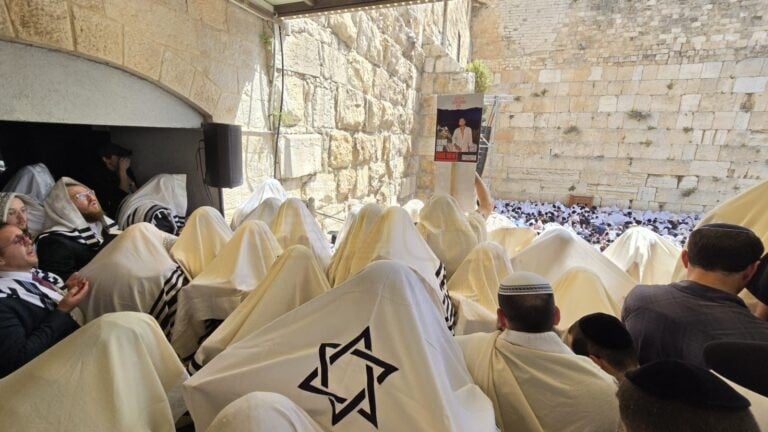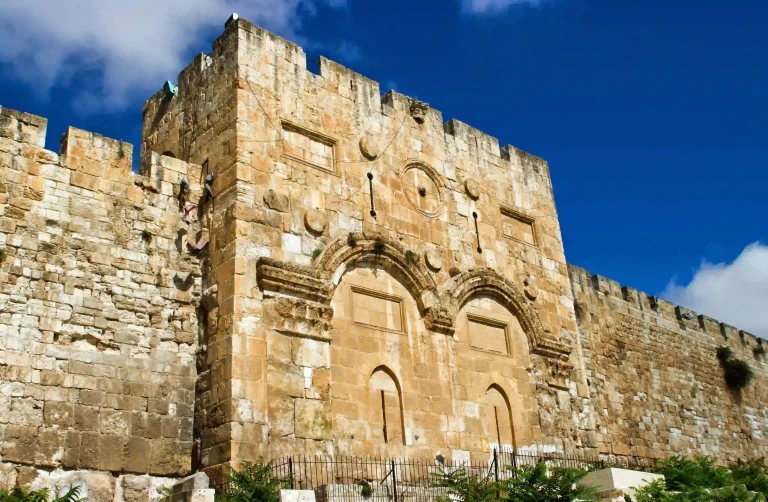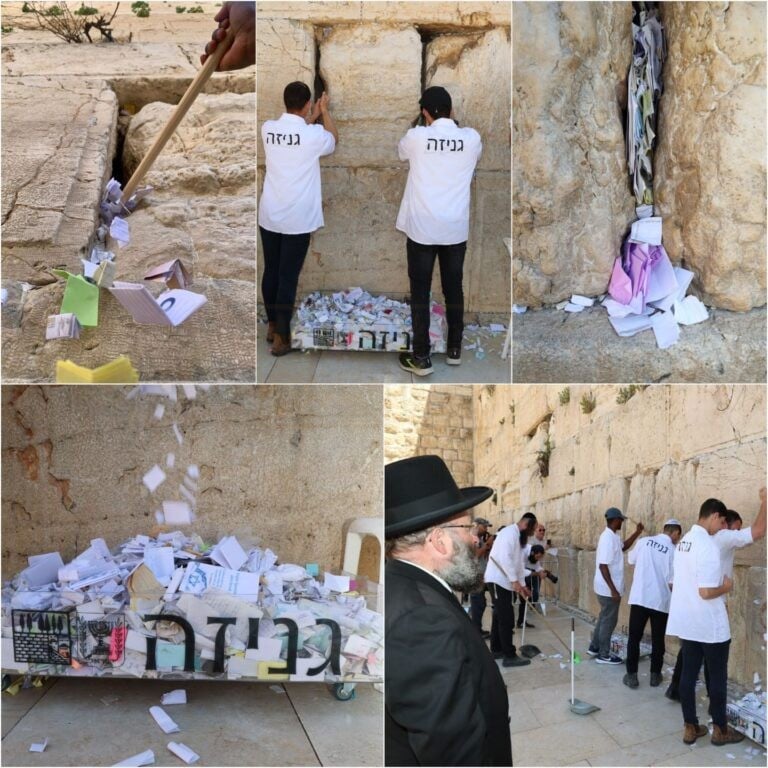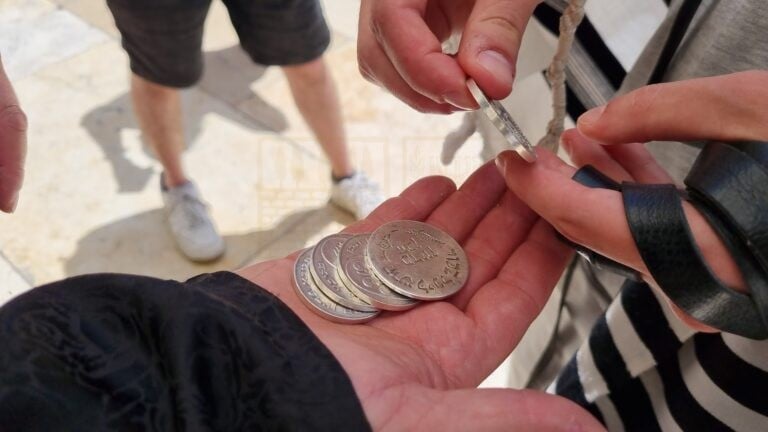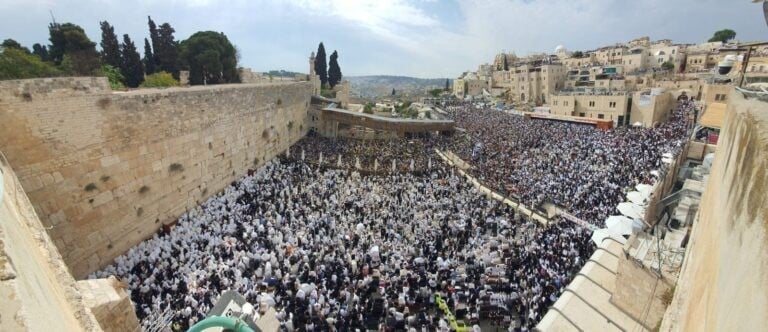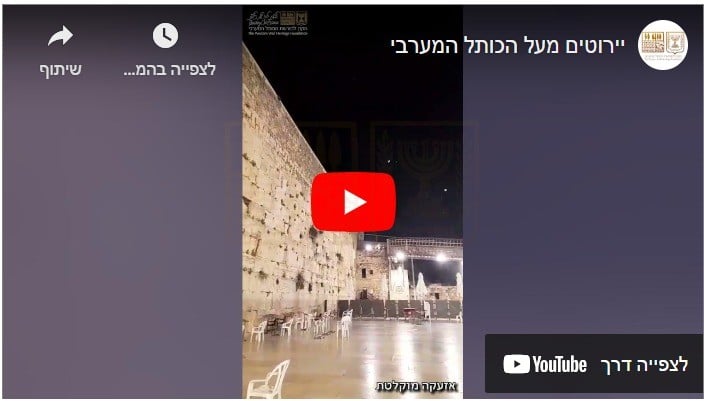Charity and Redemption – Parashat Metzora
|
Getting your Trinity Audio player ready...
|
Parashat Metzora – 5784
Rabbi Shmuel Rabinowitz, Rabbi of the Western Wall and Holy Sites
Parashat “Metzora” continues the previous portion, “Tazria”. While in the previous portion, there was a description of the tzara’at that defiles and its examination methods, in this week’s portion, the purification process of the metzora after being healed is described. Unlike any other illness where a recovered person doesn’t need to do anything further, with tzara’at the situation is different: the metzora is required to undergo a ceremonial process centered on bringing sacrifices to the Temple, and only then is he purified and allowed to enter the Temple like any other person. This is not a regular medical recovery process but a spiritual journey from impurity to purity, which sometimes makes us wonder if we can precisely gauge its essence.
Regarding the sacrifices that the metzora must bring to purify himself, consideration is given to his economic situation. A person who can afford it is required to bring expensive sacrifices, while someone who lacks sufficient financial resources can suffice with simpler and cheaper sacrifices. Besides this detail that directly reflects his economic situation, there is no difference between the purification process of the rich and that of the poor – both are purified in the same way. Nevertheless, the Torah goes back and specifies the entire purification process for the poor, just as it detailed it for his wealthy neighbor.
Why does the Torah need to revisit and detail the entire process? Because we might think that the poor man’s meager sacrifices are “less valuable”. The specification teaches us that in terms of the impact of the purification process, there is no difference between the rich and the poor. Their sacrifices are equally accepted, and it’s worth pausing for a moment on this issue – the influence of poverty on various aspects of life.
When the Torah describes the poor who receive leniency in their sacrifices, it says, “And if he is poor and his hand cannot reach…”. One of the medieval commentators, R’ Hezekiah ben Manoach, noted in his “Chizkuni” commentary on this repetition: if it’s stated that this person is “poor,” why specify that “his hand cannot reach”? He answers that poverty does not only manifest in direct distress. Often it has side effects like loneliness, social distress, difficulty in acquiring education, low social status, and more. The Torah emphasizes that we should not think that a poor person is “poor” in other aspects of his life. His poverty is summarized, or at least should be summarized, in “his hand cannot reach” – economic hardship alone and not additional difficulties that accompany it.
The existence of poverty is probably an issue that has no complete solution. But what is the effect of poverty? What are its implications? This is largely in the hands of society as a whole and, in fact, in our hands. The more we pay attention to those around us who struggle to make a dignified living and consider how we can help them out of distress, the more we reduce the influence of poverty on various aspects of life. This task is incumbent upon each and every one of us.
An interesting expression of this can be found specifically in the context of the Passover holiday, which we are approaching. The RaMA, Rabbi Moses Isserles (Krakow, 1525-1572), ruled: “It is customary to buy wheat to distribute to the poor on the eve of Passover”. The concern that each of the city’s residents should have the ability to celebrate the Passover holiday is incumbent upon all the city’s residents. On the Seder night, when we begin reading from the Passover Haggadah, we declare in the ancient Aramaic language: “Let all who are hungry come and eat; let all who are in need come and celebrate Passover.” This statement begins the celebration of the Seder night with the responsibility incumbent upon all of us to care for others and ensure that our neighbor, relative, or acquaintance celebrates the Seder night with joy.
On this night, as we celebrate the redemption of our ancestors from Egypt and await the complete redemption that will come quickly in our days, we think about the redemption of others from their distress. Even if we cannot completely rescue them from distress, we can lighten their burden and at least prevent them from experiencing a painful holiday.
As the sages said: “Great is charity – it brings the redemption”; every redemption we initiate and accomplish brings closer the general redemption of the people of Israel and all humanity. On the eve of Passover, we are called upon to extend a helping hand to others and bring about redemption.
